Hãy nhập câu hỏi của bạn vào đây, nếu là tài khoản VIP, bạn sẽ được ưu tiên trả lời.

10: I wish today is a holiday
11: I wish I can sing this song
13: I wish they will come here again
14: I wish he will go swimming with me

Before:
Build an emergency kit and make a family communications plan.
Avoid building in a floodplain unless you elevate and reinforce your home.
Elevate the furnace, water heater and electric panel in your home if you live in an area that has a high flood risk.
Consider installing "check valves" to prevent flood water from backing up into the drains of your home.
If feasible, construct barriers to stop floodwater from entering the building and seal walls in basements with waterproofing compounds.
During:
Listen to the radio or television for information.
Be aware that flash flooding can occur. If there is any possibility of a flash flood, move immediately to higher ground. Do not wait for instructions to move.
Be aware of stream, drainage channels, canyons and other areas known to flood suddenly. Flash floods can occur in these areas with or without typical warnings such as rain clouds or heavy rain.
After:
Avoid moving water.
Stay away from damaged areas unless your assistance has been specifically requested by police, fire, or relief organization.
Emergency workers will be assisting people in flooded areas. You can help them by staying off the roads and out of the way.
Play it safe. Additional flooding or flash floods can occur. Listen for local warnings and information. If your car stalls in rapidly rising waters, get out immediately and climb to higher ground.
Return home only when authorities indicate it is safe.
Before:
- Build an emergency kit and make a family communications plan.
- Avoid building in a floodplain unless you elevate and reinforce your home.
- Elevate the furnace, water heater and electric panel in your home if you live in an area that has a high flood risk.
- Consider installing "check valves" to prevent flood water from backing up into the drains of your home.
- If feasible, construct barriers to stop floodwater from entering the building and seal walls in basements with waterproofing compounds.
During:
- Listen to the radio or television for information.
- Be aware that flash flooding can occur. If there is any possibility of a flash flood, move immediately to higher ground. Do not wait for instructions to move.
- Be aware of stream, drainage channels, canyons and other areas known to flood suddenly. Flash floods can occur in these areas with or without typical warnings such as rain clouds or heavy rain.
After:
- Avoid moving water.
- Stay away from damaged areas unless your assistance has been specifically requested by police, fire, or relief organization.
- Emergency workers will be assisting people in flooded areas. You can help them by staying off the roads and out of the way.
- Play it safe. Additional flooding or flash floods can occur. Listen for local warnings and information. If your car stalls in rapidly rising waters, get out immediately and climb to higher ground.
- Return home only when authorities indicate it is safe.

Hi Tom,
I hope this email finds you well. I wanted to share an exciting opportunity with you – the upcoming Ok Om Bok Festival! It's a vibrant and culturally rich event that celebrates the traditional harvest season.
Participating in the festival will give you a chance to immerse yourself in the local culture, witness mesmerizing rituals, and enjoy delicious traditional foods. The festival's colorful atmosphere and warm community spirit make it a unique experience.
Don't miss out on this fantastic cultural celebration! Your presence would undoubtedly add to the festive cheer. Looking forward to seeing you there!
Best regards,
Xuan Thanh
Dear Tom,
I'm happy to hear that you are going to join the Ok Om Bok Festival in Soc Trang Province. As I know, Ok Om Bok Festival, also called Moon Offering Festival is traditional folk festival has existed for a very long time of Khmer people in Mekong Delta, especially 2 Tra Vinh and Soc Trang Provinces.
Here, I have some advice for you to dos and don'ts at that festival. First, I think you should wear trainer or shoes and comfortable clothes because maybe you must be walk a lot. And then, remember to bring some bottle of water, it will be hot in Soc Trang so you will get thirsty.
Also, I should remind you that you must not to litter on the ground or run away from your father. It's an big festival so it will be crowded, you should be careful to not get lost. Anyway, I hope you will have a great time with your dad and enjoy the festival.
Cheers
Living in the countryside is very unique. Although many people think that the country is not good or not well-provided, it's still one of the best options for healthy living. In the countryside, first, it's the low cost of living. Secondly, unlike the cities, the country provides fresh air and green spaces. Last but not least, the villagers are always kind and friendly, willing to help each other no matter what.
Some people really prefer to live in the downtown because of its facilities. But I prefer to live in the countryside because of many reasons.
First of all, the life in the city makes me uncomfortable, I cannot bear to live in cramped conditions with the hustles and bustles. We do not have fresh air to breathe, do not have a space for our children to play and for us to relax. It is really tiring and upset to wait for hours because of traffic jams.
Secondly, the pollution because of smogs and dusts and noise can make me feel sick. Moreover, I do not feel safe to live in the city because the criminal situations are rising. , We feel worried when we go out each time.
Thirdly, Nowadays, the conditions of the countryside are better and better, the gap between the cities and the countryside is narrowed day by day.
I love the silence, I love fresh air. I love the good relationships of people. so I love to live in countryside.

I think teenagers are as stressed as adults because of many reasons related mainly to school, friends and family.In fact, doing well at school involves a lot of pressure, because they have to complete school work, projects and reports and study hard for exams.Then, there is also the stress of having a social life and being accepted by their peers in popular groups in addition to the physical stress which result from some emotional and physical changes which can leave adolescent confused and stressed.Finally, we can mention also the stress that comes from family problems and sibling rivalry.To sum up, we can say that a lot of reasons can led teenagers to stress, which can provoke violent reactions, depression and health problems.
According to me, there are a lot of reasons of stress and pressures. Firstly, as a student, i have to complete a number of assignments at school and at home as well. Moreover, besides subjects, we also have many activies after school, such as physical activities. Students sometime feel under pressures of acheiving goal in sporty competition. Finally, we can mention the stress come from family problems, such as parent’s fight, divorce. All in all, the over-expectation from parents and the overwhelming study scheme at schools are to blame for the significant problem of students’ stress. It is, therefore, suggested that both schools and parents must take actions to cope with this problem effectively.
I think teenagers are as stressed as adults because of many reasons related mainly to school, friends and family.In fact, doing well at school involves a lot of pressure, because they have to complete school work, projects and reports and study hard for exams.Then, there is also the stress of having a social life and being accepted by their peers in popular groups in addition to the physical stress which result from some emotional and physical changes which can leave adolescent confused and stressed.Finally, we can mention also the stress that comes from family problems and sibling rivalry.To sum up, we can say that a lot of reasons can led teenagers to stress, which can provoke violent reactions, depression and health problems.
According to me, there are a lot of reasons of stress and pressures. Firstly, as a student, i have to complete a number of assignments at school and at home as well. Moreover, besides subjects, we also have many activies after school, such as physical activities. Students sometime feel under pressures of acheiving goal in sporty competition. Finally, we can mention the stress come from family problems, such as parent’s fight, divorce. All in all, the over-expectation from parents and the overwhelming study scheme at schools are to blame for the significant problem of students’ stress. It is, therefore, suggested that both schools and parents must take actions to cope with this problem effectively.

Title: A Guide to Making Your School Greener
Introduction: Welcome to our guide on how to make your school greener! By implementing sustainable practices, you can contribute to a cleaner environment and create a positive impact on the planet. In this guide, we will provide you with practical steps to help you and your school become more eco-friendly.
1. Reduce Paper Usage:
Encourage digital communication: Promote the use of emails, online platforms, and shared documents instead of relying on paper-based communication.
Opt for electronic assignments: Encourage teachers to accept electronic submissions for assignments, reducing the need for printed papers.
Utilize both sides of the paper: Encourage students and staff to print on both sides of the paper whenever possible.
2. Implement Recycling Programs:
Set up recycling stations: Place recycling bins strategically throughout the school to make it convenient for everyone to recycle paper, plastic, glass, and other recyclable materials.
Educate on proper recycling: Provide clear instructions on what can and cannot be recycled, ensuring that everyone understands the recycling process.
3. Conserve Energy:
Turn off lights and electronics: Remind students and staff to switch off lights, computers, and other electronic devices when not in use.
Utilize natural lighting: Make the most of natural light by opening curtains and blinds, reducing the need for artificial lighting during the day.
Upgrade to energy-efficient appliances: Encourage the school administration to invest in energy-efficient appliances and LED lighting, reducing energy consumption.
4. Promote Water Conservation:
Fix leaks and drips: Address any leaks or drips in faucets, toilets, or other water fixtures promptly to prevent wastage.
Encourage shorter showers: Raise awareness about the importance of shorter showers to conserve water and encourage students to be mindful of their water usage.
Collect rainwater: Install rain barrels to collect rainwater for watering school gardens or other non-potable uses.
5. Develop Green Spaces:
Start a school garden: Set up a garden where students can learn about sustainable gardening practices and grow their food.
Plant native trees and plants: Native plants require less water and maintenance, while also providing habitat for local wildlife.
Create green roofs: Implement green roofs or living walls to improve insulation and reduce energy consumption while enhancing the aesthetic appeal of the school.
Conclusion: By following these steps, you can make your school a greener and more sustainable place. Remember, small changes can have a significant impact when everyone in the school community works together towards a greener future. Start implementing these practices today and lead the way in creating a more environmentally conscious school environment.

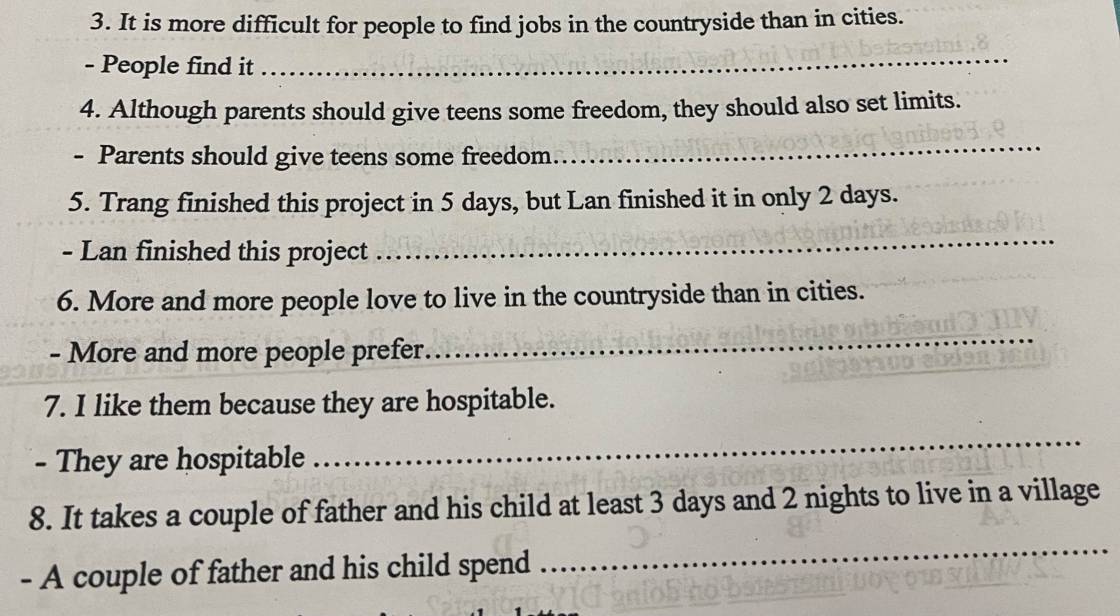
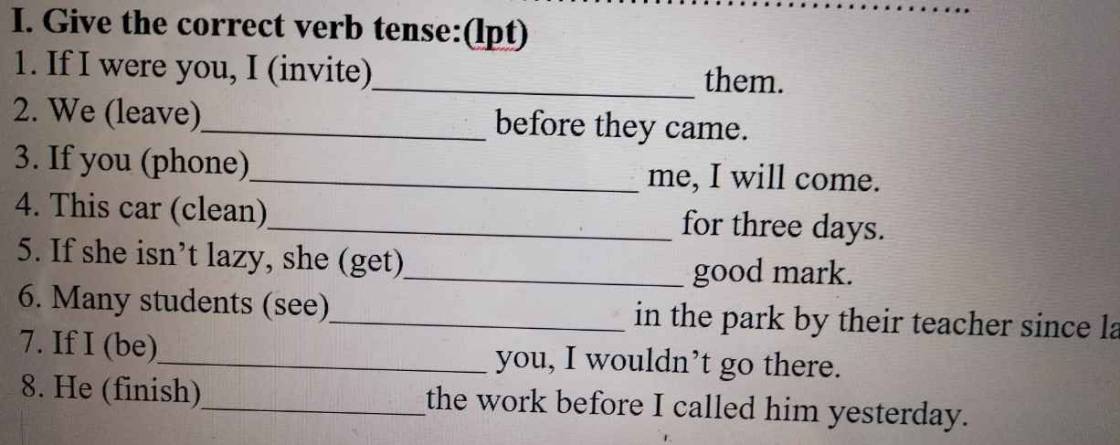
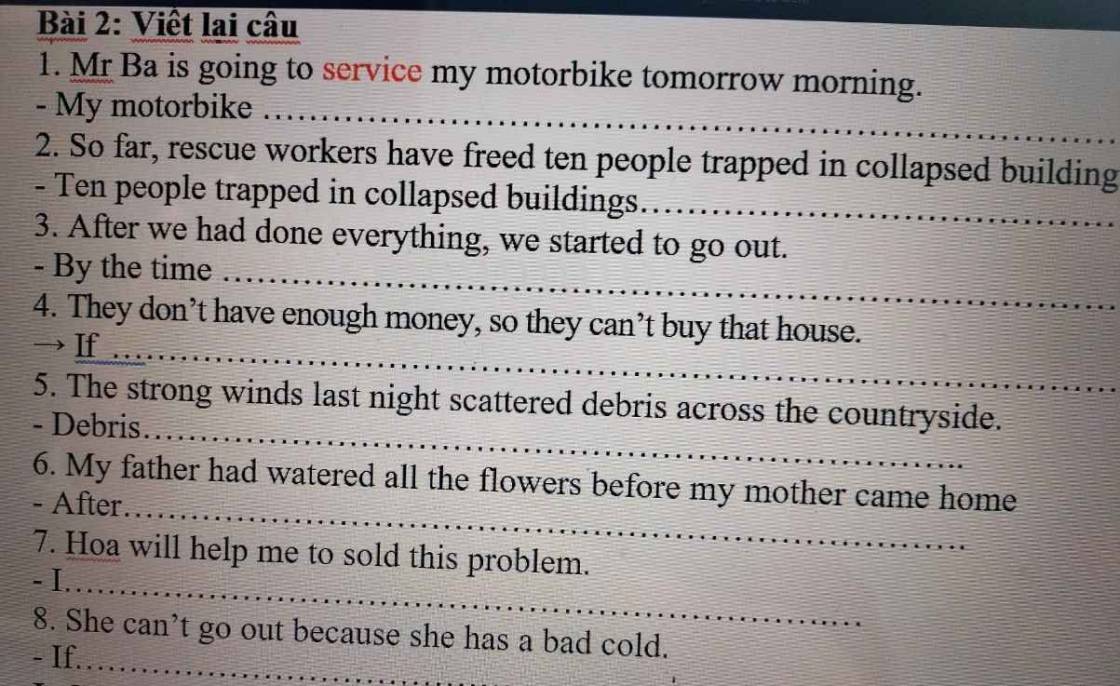
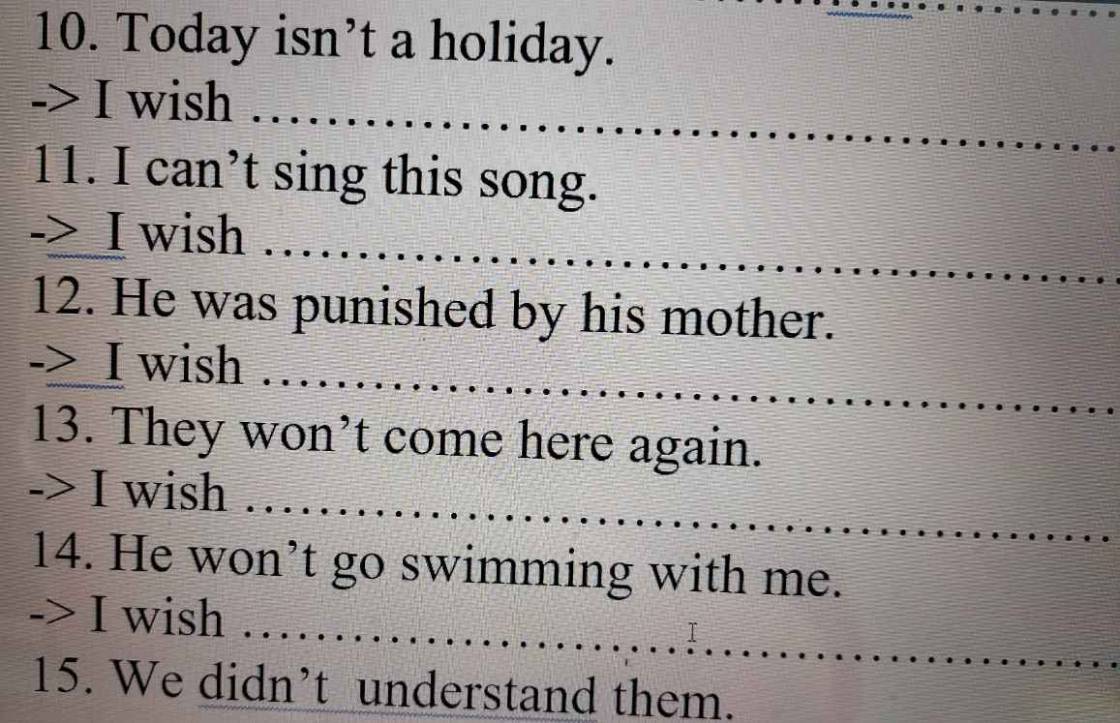
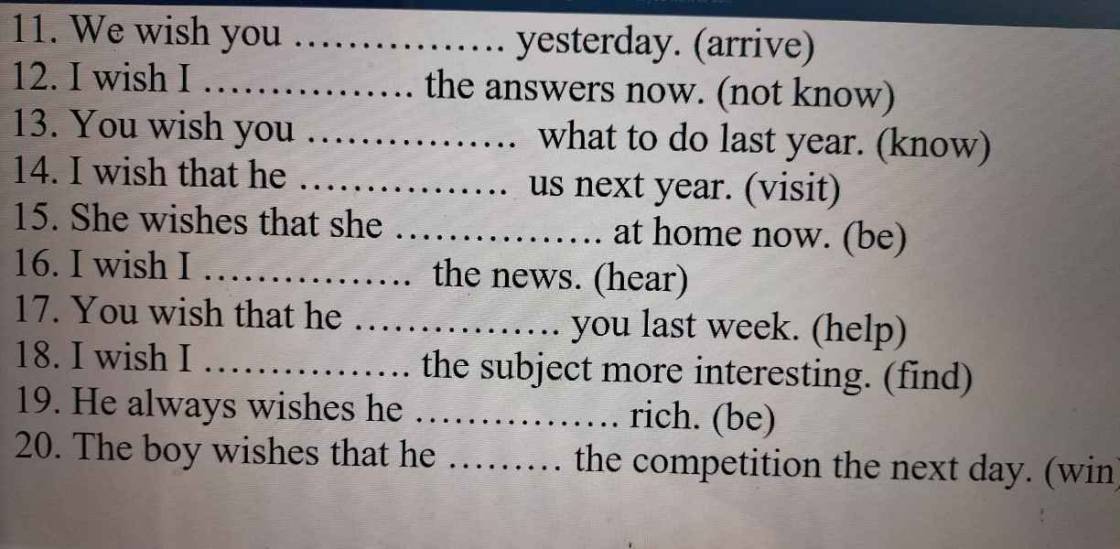


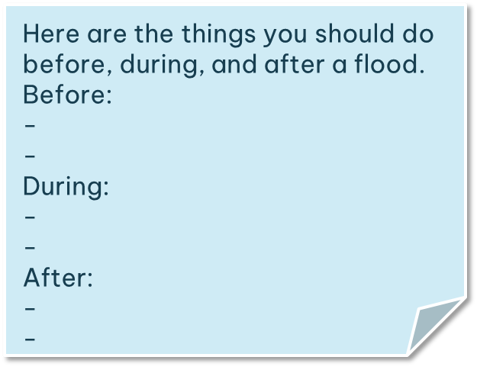

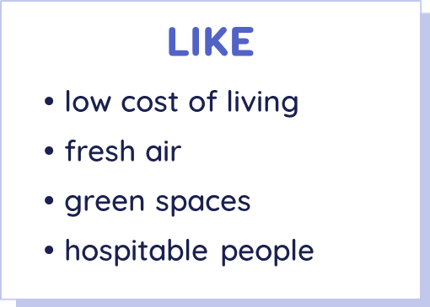




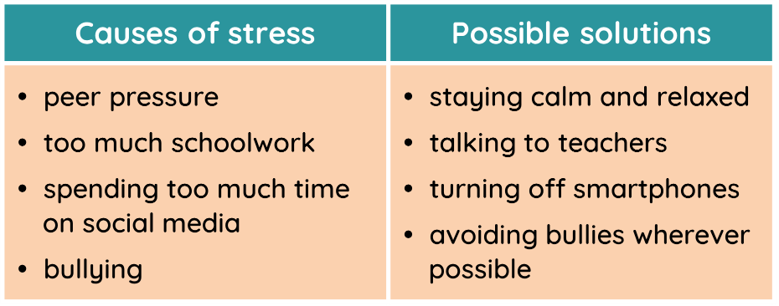
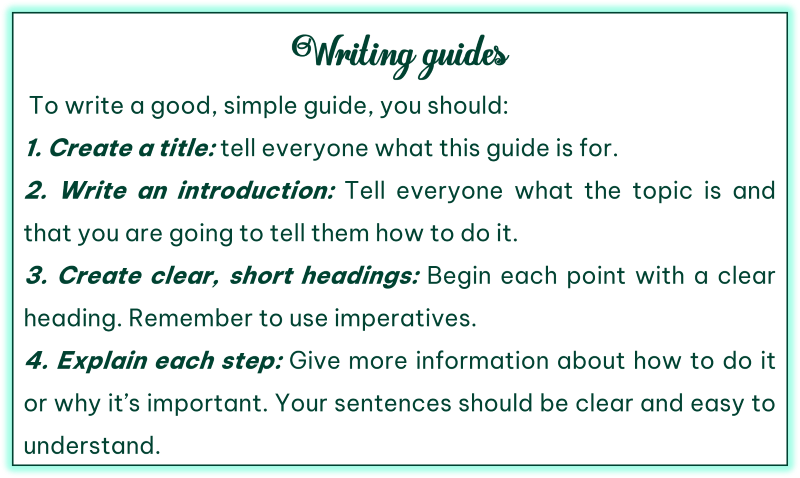

 Help me
Help me
3 People find it more difficult to find jobs in the countryside than in the city
8 A couple of father and his child spend at least 3 days and 2 nights living in a village